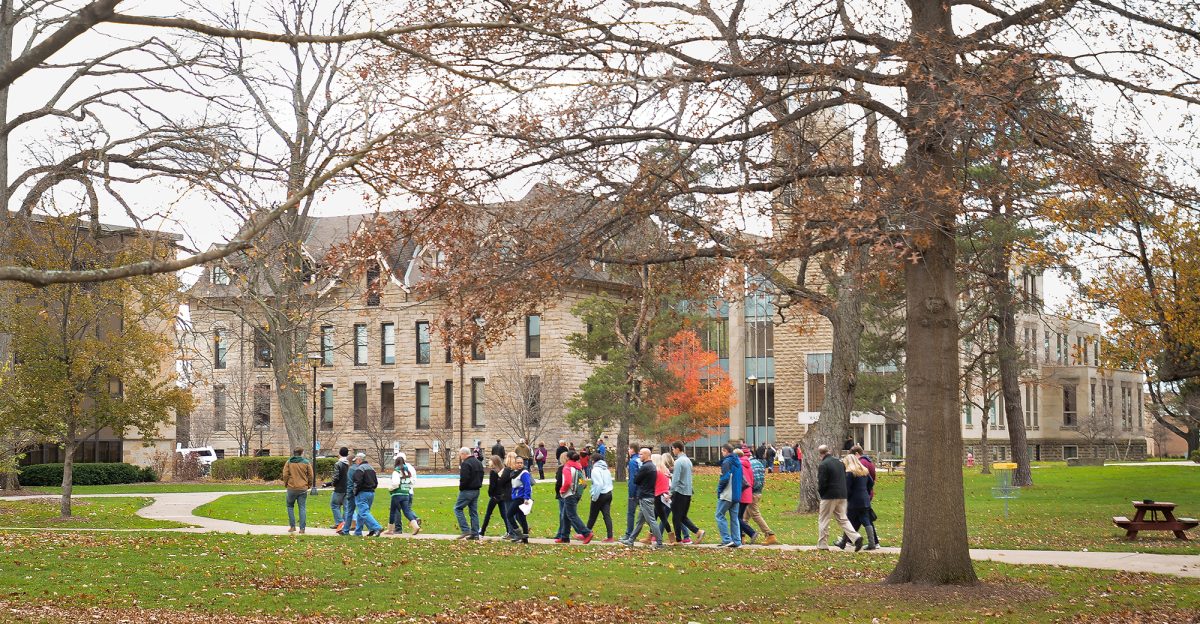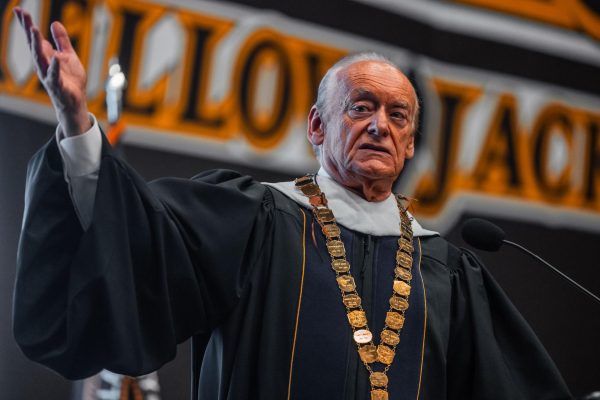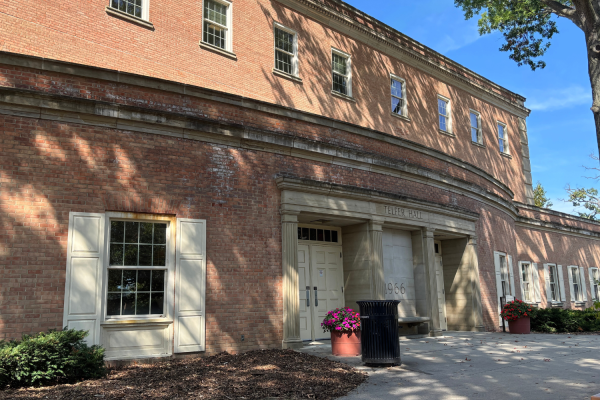Cleveland State student wins Fourth Amendment case
The student said the 360-degree room scan of the students’ surroundings, required by the university’s online exam software, violated his constitutional right to privacy.
The United States District Court in the Northern District of Ohio ruled that an online proctored exam taken by Aaron Ogletree, a student at Cleveland State University, breached his Fourth Amendment rights.
This case prevents schools from using room scans in the future; however, this does not include private universities, such as Baldwin Wallace University, as they are not subject to the same rules.
These exams required a virtual scan of students’ rooms and surroundings to prevent cheating; however, because they were baseless searches of an individual’s home, they were declared unconstitutional.
After Ogletree was asked to perform one such room scan, he refused via email, explaining that there were confidential documents on his desk that he would not have time to secure but inevitably submitted to the room scan when asked.
Ogletree said the 360-degree room scan of the students’ surroundings, including their homes and living spaces, was a direct violation of his Fourth Amendment protected rights. The room scans were visible to the professors and other students and were recorded and retained by a third-party vendor.
Cleveland State University has a testing policy that is meant to prevent cheating; however, the school only mandates that students have an updated ID photo within a database to prevent impersonations of students, a reportedly unenforced policy. The school leaves other preventative methods to the faculty member proctoring the exam.
Although it is left up to the faculty member, the two online proctoring tools that Cleveland State uses for their exams requires a room scan to prevent cheating, which includes using the individual’s computer webcam to scan the student’s surroundings for possible cheating materials, previously considered a widespread practice for many universities.
“All students, regardless of the course or instructor, are asked to do this (a room scan) as part of the check-in process,” Cleveland State’s testing services coordinator said to Ogletree.
Ogletree connected this room to his right to privacy outlined in the Fourth Amendment of the United States Constitution. The Fourth Amendment defines this right as “the right of the people to be secure in their persons, houses, papers, and effects, against unreasonable searches and seizures…”
The Fourth Amendment protects the individual against the government and government acting agencies; however, the Supreme Court of the United States created an exception to this rule that applies to some private parties, such as teachers.
This exception defines teachers as representatives of the state, creating rules that limit educators’ ability to infringe on their students’ privacy. These rules are much less strict than those for traditional government agents.
For teachers to exercise their right to invade a student’s privacy, the search may be declared reasonable and follow a particular set of guidelines, i.e., the search must have been done with a reasonable belief that the search will turn up evidence that the individual is violating the law or a rule of the school.
Ogletree requested that the court prevent the university from continuing this behavior and an official statement by the court outlining the rights and responsibilities of each party involved (outlining students’ rights to privacy and the universities responsibility to uphold these rights).
The court found that the search was baseless and was done so without suspicion of any individual wrongdoing; therefore, the searches did not reach the requirements necessary for them to be constitutional and ruled in favor of Ogletree, declaring room scans to be unconstitutional searches that invade an individual’s privacy.
The Exponent is looking for financial contributions to support our staff and our newsroom in producing high-quality, well-reported and accurate journalism. Thank you for taking the time to consider supporting our student journalists.




































